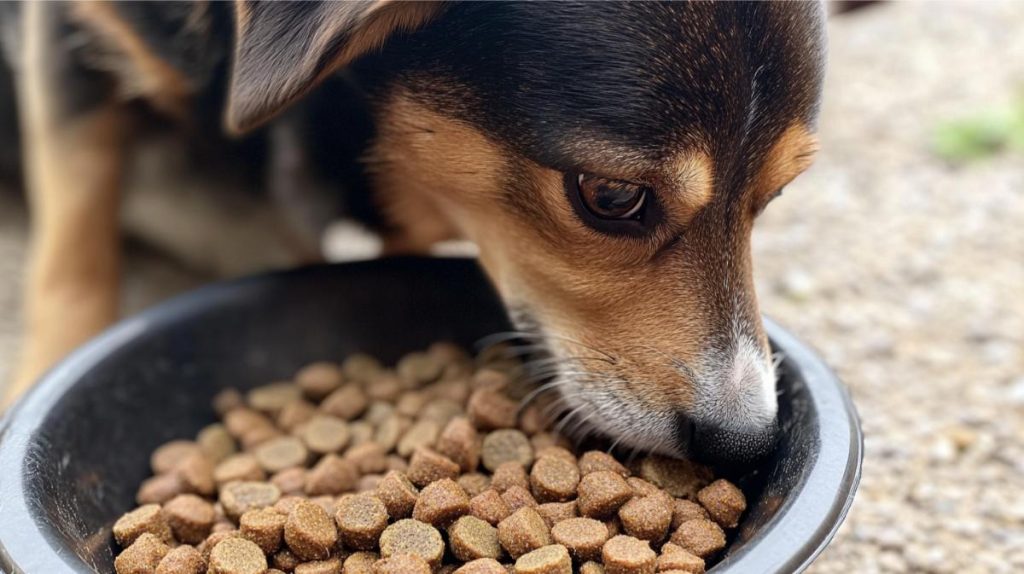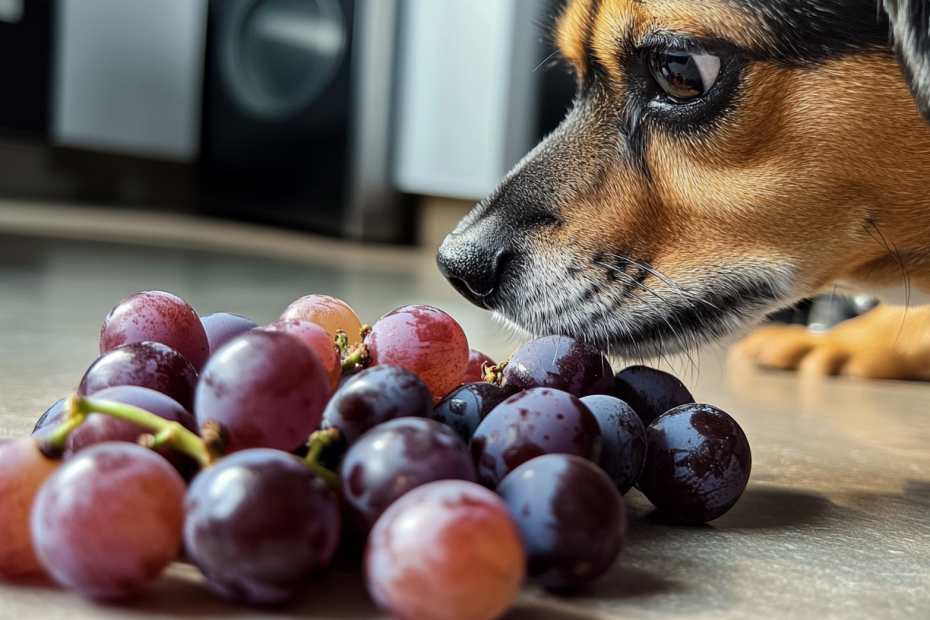You love your furry friend and want to keep them healthy. But did you know some everyday foods in your kitchen could be harmful to your pet? It’s true!
What’s yummy for you might make your four-legged pal sick.
Knowing which foods are dangerous for your pet can help keep them safe and happy.
Let’s take a look at some common foods that could be bad news for your furry buddy. By learning about these risks, you’ll be a pet safety pro in no time!
1. Chocolate
You might love chocolate, but your furry friend can’t handle the sweet stuff. It’s like kryptonite for dogs!
Chocolate contains theobromine, which dogs can’t process well. Even a small amount can make them sick.
If your pup sneaks a bite, watch for signs of chocolate poisoning like vomiting or increased body temperature. Dark chocolate is worse than milk chocolate, so keep those fancy bars out of reach!
Remember, your dog’s health is more important than satisfying their sweet tooth. Stick to dog-friendly treats instead.
2. Grapes and Raisins

Did you know that those sweet, juicy grapes you love could be a nightmare for your furry friend? It’s true! Grapes and raisins are highly toxic foods for dogs.
Even a small amount can cause big trouble. Just a few grapes or raisins might lead to sudden kidney failure in your pup. Yikes!
Keep those fruit bowls out of reach and double-check your trail mix. Your four-legged buddy will thank you for being grape-free!
3. Onions and Garlic

Did you know your kitchen staples could be trouble for your furry friends as well? Onions and garlic are big no-nos for dogs and cats.
These flavor-packed veggies can cause anemia in pets. They damage red blood cells, leading to weakness and pale gums. Yikes!
Keep an eye out for symptoms like vomiting and blood in the urine. If you suspect your pet has nibbled on these, call your vet pronto!
4. Avocado
You might love guacamole, but your furry friend should steer clear of avocados. These creamy fruits contain persin, a substance that can be harmful to dogs.
If your pup sneaks a bite, keep an eye out for tummy troubles. Vomiting and diarrhea are common signs of avocado poisoning in dogs.
Remember, it’s not just the flesh that’s off-limits. The pit, skin, and even the plant itself can spell trouble for your four-legged friend.
So next time you’re whipping up some avo toast, make sure it’s a humans-only treat!
5. Macadamia Nuts

Did you know those tasty macadamia nuts in your trail mix could be bad news for your furry friend? It’s true! These nuts are toxic to dogs.
If your pup sneaks a few, they might get weak legs, start wobbling around, or even throw up. It’s like they’ve had one too many doggy cocktails!
While it’s usually not super serious, it’s best to keep these nuts out of paw’s reach. If your dog does snack on macadamias, give your vet a call. They’ll know just what to do to get your pooch feeling tip-top again.
6. Alcohol
You might enjoy a cold beer or glass of wine, but keep it away from your furry friend! Alcohol can cause serious harm to pets, even in small amounts.
Your four-legged buddy could get drunk just like humans do. But for them, it’s no laughing matter. Alcohol can lead to vomiting, diarrhea, and in severe cases, even seizures.
So next time you’re sipping on your favorite cocktail, make sure your pet doesn’t get a taste. Keep those alcoholic beverages out of paw’s reach and stick to water for your furry companion.
7. Caffeine
You might love your morning coffee, but your furry friend shouldn’t share in the caffeine buzz. Caffeine can be dangerous for pets, causing increased heart rate and blood pressure.
It’s not just coffee that’s a no-no. Tea, energy drinks, and even some medications contain caffeine. Be sure to keep these out of paw’s reach.
If your pet accidentally consumes caffeine, watch for signs like restlessness, vomiting, or tremors. Quick action can make a big difference, so don’t hesitate to call your vet if you’re worried.
8. Xylitol (in sugar-free gum)

Watch out for that pack of sugar-free gum in your purse! It might contain xylitol, a sweetener that’s a real party pooper for your furry friends.
While it’s safe for humans, xylitol can be dangerous for your pet’s heart. Even a small amount can cause your dog’s blood sugar to plummet faster than a skydiver without a parachute.
Keep an eye on other sneaky xylitol hideouts too. It can lurk in sugar-free desserts, nut butters, and even some toothpastes.
Your pet’s health is worth more than fresh breath, right?
9. Cooked Bones
You might think tossing your pup a leftover bone is a treat, but cooked bones can be a recipe for disaster. These seemingly innocent snacks can break into sharp pieces that might hurt your furry friend’s mouth or throat.
Even worse, they could cause internal bleeding if swallowed. So next time you’re tempted to share that drumstick, remember: your dog’s health is worth more than a moment of bone-crunching joy.
Stick to safer chew toys instead. Your pet will thank you with wagging tails and slobbery kisses!
Signs Your Pet Might Be Ingesting Something Toxic
Spotting the signs of toxic ingestion in your pet can be tricky.
Keep an eye out for unusual behaviors and physical symptoms that may indicate your furry friend has eaten something harmful.
Behavioral Changes

Is your pet acting a bit off? They might be telling you something’s wrong. Watch for:
- Unusual lethargy or sleepiness
- Sudden agitation or restlessness
- Loss of appetite or refusing treats
- Excessive drooling or panting
- Hiding or seeking isolation
Your normally playful pup suddenly turning into a couch potato could be a red flag. If Fluffy’s giving you the cold shoulder at dinner time, it might not just be a case of food snobbery.
Physical Symptoms
Your pet’s body can show signs of distress too. Keep your eyes peeled for:
- Vomiting or dry heaving
- Diarrhea or changes in stool
- Pale gums or excessive salivation
- Difficulty breathing or coughing
- Seizures or tremors
If your furry friend is leaving you unpleasant surprises around the house, it might not just be bad manners. Sudden tummy troubles could be a sign of food poisoning.
Understanding Pet Digestion
Pet digestion is quite different from human digestion. Your furry friend’s body processes food in unique ways.
How Pets Process Food Differently

Your pet’s digestive system is built for speed. Dogs and cats have shorter digestive tracts than humans. This means food moves through their system faster.
Pets also have different enzymes in their stomachs. These enzymes help break down certain foods.
For example, dogs can digest raw meat better than humans can.
Cats are obligate carnivores. This means they need meat to survive. Their bodies aren’t designed to process plant-based foods well.
Dogs, on the other hand, are omnivores. They can eat both meat and plants. But their bodies still handle some foods differently than yours.
Common Pet Food Allergies
Just like humans, pets can have food allergies too. Some common allergens for pets include:
- Beef
- Dairy
- Chicken
- Wheat
- Eggs
Symptoms of food allergies in pets can include:
- Itchy skin
- Ear infections
- Tummy troubles
- Paw licking
If you suspect your pet has a food allergy, talk to your vet. They might recommend an elimination diet to find the culprit.
Some pets are also lactose intolerant. This means they can’t digest milk well. It can lead to tummy aches and diarrhea.
Remember, each pet is unique. What bothers one might be fine for another. Always check with your vet before making big changes to your pet’s diet.
Preventing Pet Poisoning
Keeping your furry friends safe from toxic foods is easier than you might think. With some simple changes to your kitchen habits and a bit of know-how, you can protect your pets from accidental poisoning.
Safe Pet Food Alternatives
Want to treat your pet without risking their health? Try these tasty and safe alternatives:
- Carrots: A crunchy, low-calorie snack for dogs
- Cooked egg whites: Great protein source for cats and dogs
- Plain, cooked chicken: A lean protein treat
- Pumpkin puree: Aids digestion and tastes yummy
Avoid giving your pet human foods that could be toxic. Instead, stick to pet-specific treats or ask your vet for recommendations.
Remember, even safe foods should be given in moderation. Too much of a good thing can lead to tummy troubles!
Proper Food Storage Tips
Keep your pet from sneaking dangerous snacks with these clever storage ideas:
- Use airtight containers for all human food
- Store pet food in sealed bins to maintain freshness
- Keep trash cans covered or in a closed cabinet
- Place harmful items like cleaning products and medications in high cabinets
Don’t forget about those sneaky chip bags! They can be a suffocation risk, so always dispose of them properly.
